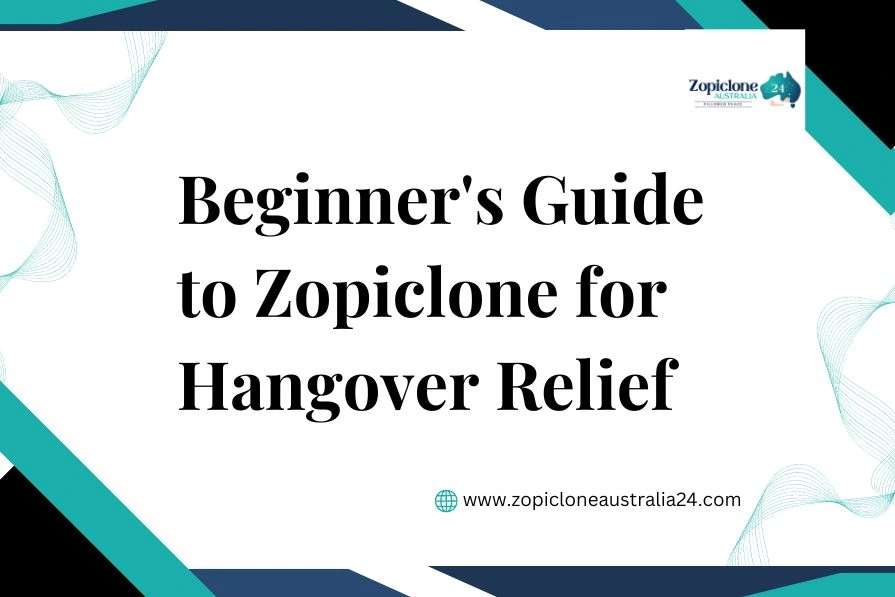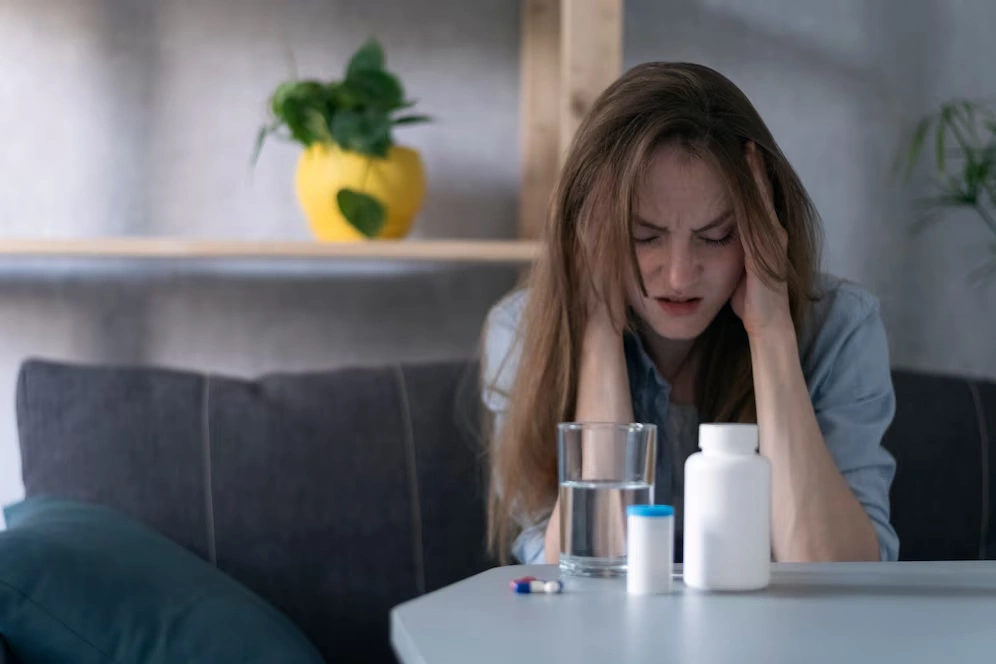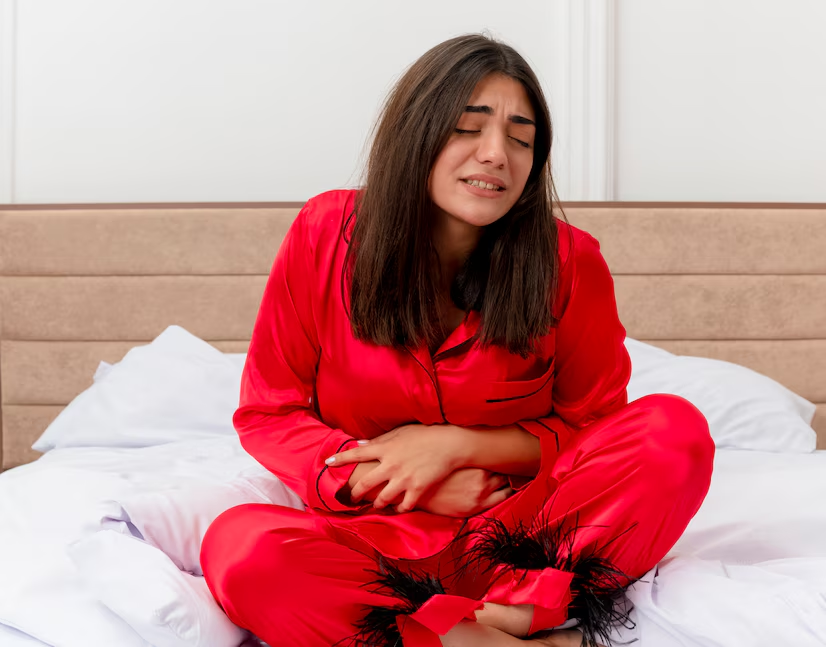Beginner’s Guide to Zopiclone for Hangover Relief

A hangover is an unpleasant condition that many people experience after consuming alcohol, often characterized by symptoms such as headaches, fatigue, nausea, and difficulty sleeping. While most hangovers resolve on their own, some individuals seek out medications to alleviate the discomfort and help them recover more quickly. One such medication that some people consider using is Zopiclone, a prescription drug typically used for treating insomnia. But can Zopiclone be an effective remedy for a hangover? In this guide, we’ll explore the use of Zopiclone in the context of hangover relief, providing insights into its effectiveness, potential risks, and how it should be used safely.
Table of Contents
ToggleUnderstanding Zopiclone
Zopiclone belongs to a class of medications known as non-benzodiazepine hypnotics, commonly referred to as “Z-drugs.” It is primarily prescribed to treat insomnia by helping individuals fall asleep faster, stay asleep longer, and reduce nighttime awakenings. Zopiclone works by enhancing the action of gamma-aminobutyric acid (GABA), a neurotransmitter in the brain that promotes relaxation and sleep.
Zopiclone and Hangovers: Can It Help?
Hangovers often include a range of symptoms that can make sleeping difficult. Fatigue, restlessness, and the after-effects of alcohol consumption can interfere with the quality of sleep, leading some to consider using Zopiclone to counteract these issues. While Zopiclone can indeed help improve sleep quality, its use specifically for hangovers is not a standard or recommended treatment.
The Appeal of Zopiclone for Hangovers
- Improved Sleep: One of the most appealing aspects of Zopiclone for hangover relief is its ability to help you sleep. Sleep is crucial for recovery after alcohol consumption, as it allows your body to rest, detoxify, and repair itself. By promoting a deeper, more restful sleep, Zopiclone could theoretically help alleviate some of the discomfort associated with a hangover.
- Reduced Anxiety: Hangovers can sometimes trigger anxiety, known as “hangxiety.” Zopiclone’s calming effects on the brain may help reduce anxiety levels, allowing you to relax and sleep more soundly.
Potential Risks and Considerations
While the idea of using Zopiclone to ease hangover symptoms might sound appealing, it is essential to consider the potential risks and downsides.
- Alcohol Interaction: One of the most significant concerns with using Zopiclone after drinking is the interaction between the drug and alcohol. Both alcohol and Zopiclone depress the central nervous system, meaning that their combined effects can be dangerous. This combination can lead to excessive drowsiness, difficulty breathing, impaired motor coordination, and even life-threatening consequences.
- Addiction and Dependence: Zopiclone has the potential for abuse and addiction, particularly if used regularly or in higher-than-prescribed doses. Using Zopiclone to cope with hangovers can lead to a pattern of misuse, where the individual becomes reliant on the medication to manage their symptoms. This can result in a cycle of dependency that is difficult to break.
- Tolerance Development: Over time, the body can develop a tolerance to Zopiclone, meaning that higher doses are required to achieve the same effects. This not only increases the risk of side effects but also contributes to the potential for addiction.
- Side Effects: Zopiclone can cause a range of side effects, including dizziness, dry mouth, headaches, and next-day drowsiness. These side effects can compound the discomfort of a hangover rather than relieve it.
How to Use Zopiclone Safely
If you are considering using Zopiclone to manage hangover-related sleep issues, it is crucial to do so under the guidance of a healthcare professional. The following are important things to remember:
- Consult a Doctor: Always consult your doctor before taking Zopiclone, especially if you plan to use it in the context of hangover relief. Your doctor can provide personalized advice based on your health history and the severity of your symptoms.
- Avoid Mixing with Alcohol: Never take Zopiclone if you have consumed alcohol recently or if you plan to drink. The interaction between Zopiclone and alcohol can be hazardous and should be avoided.
- Follow the Prescribed Dosage: If your doctor prescribes Zopiclone, ensure that you follow the dosage instructions carefully. Do not take more than the recommended dose, and do not use Zopiclone for longer than prescribed.
- Use Only When Necessary: Zopiclone should be used as a short-term solution for sleep problems, not as a regular remedy for hangovers. Over-reliance on Zopiclone can lead to dependency and other complications.
- Consider Alternatives: If you frequently experience hangovers, consider alternative strategies for managing your symptoms. Hydration, balanced meals, over-the-counter pain relievers, and natural sleep aids may be safer and more effective options.
Alternatives to Zopiclone for Hangover Relief
Rather than relying on Zopiclone, there are several other strategies you can employ to manage hangover symptoms and promote better sleep:
- Hydration: Since alcohol is a diuretic, it can cause dehydration by increasing the output of urine. Drinking plenty of water before bed and throughout the day after drinking can help mitigate dehydration and reduce hangover symptoms.
- Electrolytes: Replenishing lost electrolytes can also be beneficial. Drinks like coconut water, sports drinks, or rehydration solutions can help restore electrolyte balance.
- Over-the-Counter Medications: Over-the-counter pain relievers such as ibuprofen or aspirin can help alleviate headaches and muscle pain associated with hangovers. However, be cautious with acetaminophen (paracetamol) as it can be harsh on the liver, especially after alcohol consumption.
- Balanced Meals: Eating a balanced meal before and after drinking can help stabilize blood sugar levels and reduce nausea. Vitamin, mineral, and antioxidant-rich foods can aid in your body’s healing process.
- Natural Sleep Aids: If sleep is a particular issue, consider natural sleep aids such as melatonin, valerian root, or chamomile tea. These options are generally safer and carry fewer risks than prescription medications like Zopiclone.
- Rest and Relaxation: Allow your body the time it needs to recover. Engage in light activities, avoid excessive stress, and try to relax as much as possible. Sleep, even if it comes in short intervals, will aid your recovery.
Conclusion
Zopiclone is a powerful sleep aid that can help those struggling with insomnia get the rest they need. However, its use for hangover relief is not recommended due to the potential risks associated with combining it with alcohol and the possibility of developing a dependency. If you’re experiencing hangover-related sleep disturbances, it’s essential to consider safer alternatives and consult with a healthcare provider for guidance.
While Zopiclone may offer temporary relief for sleep issues, it is not a cure for hangovers and should not be used as a crutch for alcohol-induced symptoms. By focusing on hydration, nutrition, and natural remedies, you can more effectively manage hangover symptoms and support your overall well-being without relying on potentially harmful medications.
Read more: Zopiclone: An In-Depth Guide

Noah Harrison, based in Australia, is an experienced content writer with a strong focus on the medical industry. Holding a master’s degree in English literature, Noah Harrison combines exceptional writing skills with in-depth knowledge of medical science to create informative and engaging content. Read more about Noah Harrison.





